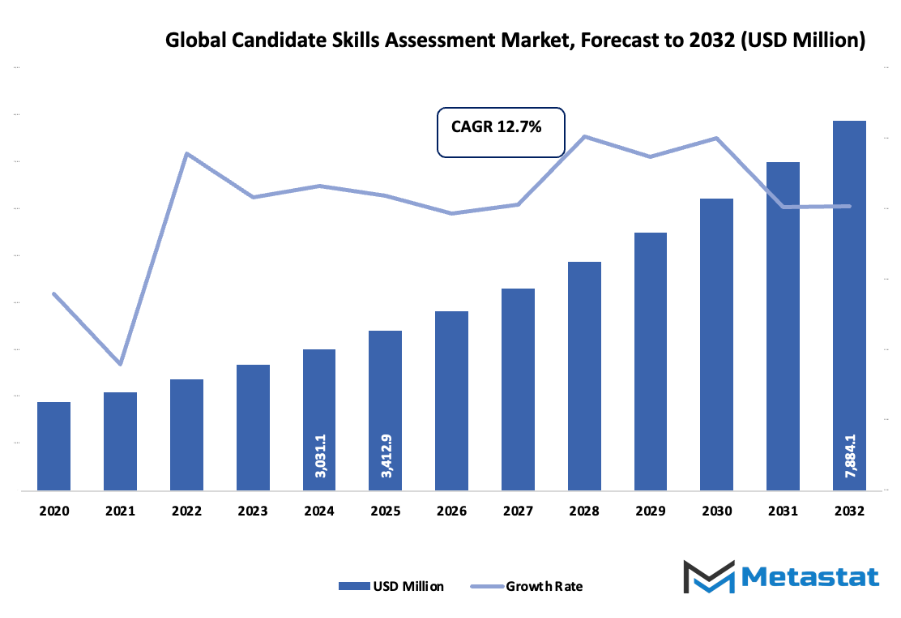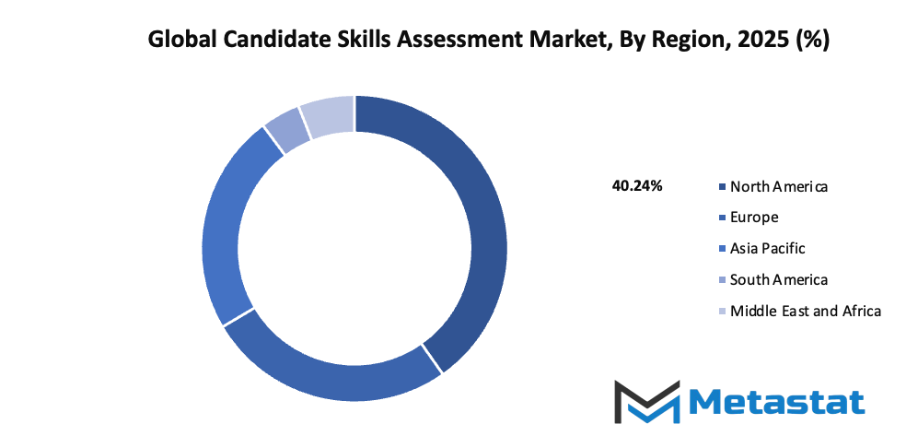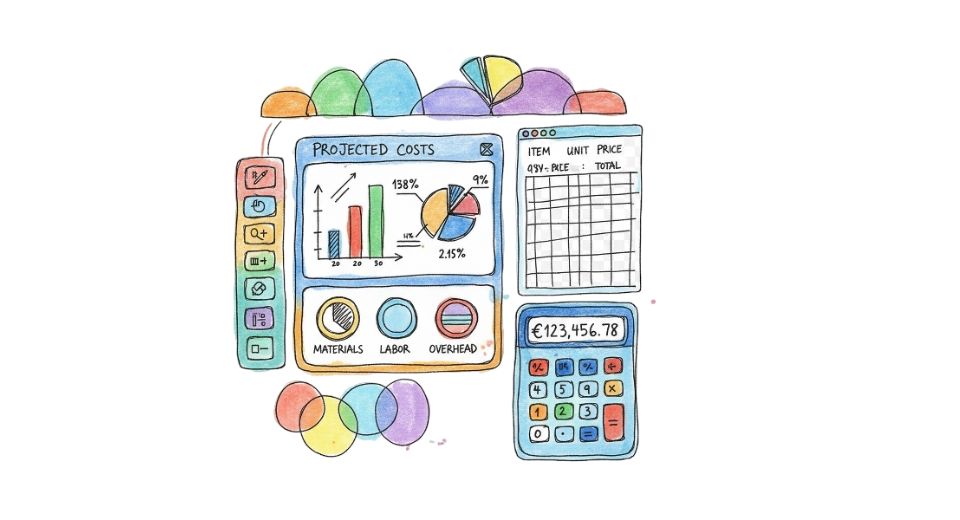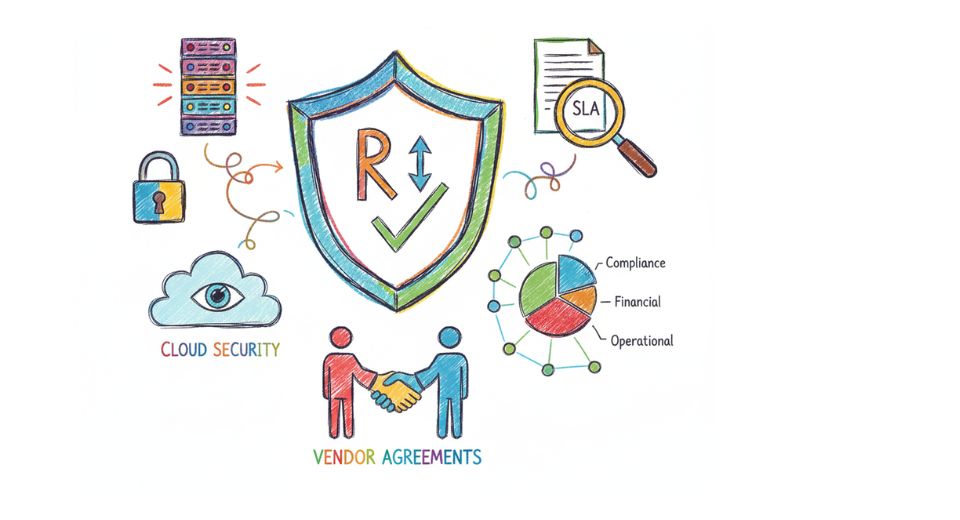Global Candidate Skills Assessment Market - Comprehensive Data-Driven Market Analysis & Strategic Outlook
The global candidate skills assessment market is a business that exists out of necessity due to the way organizations today assess talent and make hiring determinations. Its earliest roots are in the mid-20th century when aptitude tests and standardized tests were a standard part of hiring within large corporations. Companies were then using paper-based testing as a vehicle for assessing mental capacity and job fit, a practice that was relatively on a limited scale but the start of standardized testing in recruitment practice.
- Global candidate skills assessment market worth around USD 3412.9 million in 2025 at a CAGR of around 12.7% up to 2032, with future prospects likely to be much over USD 7884.1 million.
- On-premise holds approximately 28.1% market share, driving innovation and expanding applications through rigorous research.
- Key trends driving growth: Increased demand for specialized skills throughout the workforce., Emphasis on data-driven hiring to improve job fit and performance.
- Opportunities include: Utilization of technology-enabled assessment solutions for remote and automated testing.
- Key finding: The market will grow exponentially in value over the next decade, indicative of compelling growth opportunities.
- When the workplace itself changed in the late 20th century, personal computing revolutionized the method of delivering tests.

Computer-based testing enabled employers to break out of simplistic questionnaires and use more sophisticated, interactive formats. Not only did it enable the testing of more diversified skills, but it provided recruiters with instant feedback on the potential of candidates. The mass introduction of the internet in the 1990s further amplified this tendency. Organizations began to try out online tests, breaking geography and allowing organizations to screen candidates across the world. The 2000s saw another breakthrough innovation: the emergence of software platforms specifically for measuring talent. Organizations began to incorporate assessment solutions into their recruitment platforms, developing an efficient talent pipeline.
With the rise of telecommuting and globalism, exams began addressing not only technical skills but also soft skills like communication, problem-solving, and adaptability. Applicants no longer had to prove their academic qualifications alone; nowadays, employers wanted evidence of competence in the form of formal examinations. In recent years, market norms as well as ethical concerns have impacted the candidate skills testing business globally. Transparency, fairness, and data privacy have become the imperative attributes of contemporary assessments. Concurrently, technological advancements in analytics and artificial intelligence will continue propelling insights depth employers can draw, while ensuring practice unbiased and inclusive. In the future years, the market will keep on evolving as organizations require more tailored, scalable, and culturally aware solutions to address diverse workers' needs
Market Segments
The global candidate skills assessment market is mainly classified based on Deployment Mode, Product Type, Process, End User.
By Deployment Mode is further segmented into:
- On-premise: The global candidate skills assessment market under on-premise deployment will remain appealing to organizations that desire complete control of data and the assessment process. The model has the advantage of customization and security, and therefore appropriate for high-data compliance industries. Future expansion will be aligned with firms having sensitive operations appreciating in-house infrastructure.
- Cloud: global candidate skills assessment market is experiencing rapid adoption of cloud-based solutions with flexibility, scalability, and cost savings. Future will incorporate AI and analytics, providing real-time information to train and hire. The mode will be prevalent in the market due to remote access and decreased IT maintenance leading to increased acceptability.
By Product Type the market is divided into:
- Aptitude/Psychometric Test: The Global Candidate Skills Testing Market will experience a higher demand for psychometric and aptitude testing with companies focusing more on predictive hiring. These tests aid in problem-solving ability and intellectual capacity testing. Precision and versatility in the future will render these tests as a reliable way of identifying high-potential employees.
- Personality Test: The global candidate skills assessment market will grow in personality testing due to preference by companies for behavioral knowledge in addition to technical knowledge. Workplace fit, communication style, and cultural fit are major focuses in personality testing. Future trends will prioritize advanced profiling, eliminating prejudice, for maintaining unbiased assessment in recruitment and development at the workplace.
- Leadership Assessments/testing: The global candidate skills assessment market will expand under leadership testing as firms concentrate on creating good leaders for long-term success. These tests emphasize decision-making, problem-solving, and flexibility in leadership roles. Leadership testing in the future will come to incorporate complex analytics to forecast prospect and readiness for high-level duties.
- Others: The global candidate skills assessment market also includes specialized tools outside of standard testing categories such as language knowledge and technical skill assessments. There will be increased demand as industries pursue customized methods in specific professions. The future will involve creative methods incorporating automation and AI-based testing for improved precision and efficiency.
By Process the market is further divided into:
- Diagnosis: The global candidate skills assessment market involves diagnostic testing to reveal gaps in skills and knowledge. This is the basis on which effective training programs and successful recruitment are constructed. Diagnostic tools of the future times will be more predictive, assisting organizations in foreseeing challenges and matching talent with strategic intent.
- Assessment: The global candidate skills assessment market relies extensively on assessment processes to accurately quantify abilities. Standardized evaluation across the board guarantees level playing fields when comparing candidates. Future assessment will not only be more interactive, utilizing evidence-based tools that learn in real-time, but also provide richer insights into potential and performance across various industries.
By End User the global candidate skills assessment market is divided as:
- Corporate: The global candidate skills assessment market serves corporate users by streamlining recruitment, development, and workforce planning. Businesses will continue to invest in these tools for efficiency and reduced turnover. Future corporate adoption will focus on digital solutions that ensure diversity, inclusion, and effective alignment of employees with company goals.
- Education: The global candidate skills assessment market benefits education by offering tools that evaluate student readiness, career alignment, and learning progress. Educational institutions will increasingly rely on these methods for holistic evaluations. Future trends will emphasize adaptive testing technologies, supporting personalized learning and preparing students for competitive job markets.
|
Forecast Period |
2025-2032 |
|
Market Size in 2025 |
$3412.9 Million |
|
Market Size by 2032 |
$7884.1 Million |
|
Growth Rate from 2025 to 2032 |
12.7% |
|
Base Year |
2024 |
|
Regions Covered |
North America, Europe, Asia-Pacific, South America, Middle East & Africa |
By Region:
- Based on geography, the global candidate skills assessment market is divided into North America, Europe, Asia-Pacific, South America, and the Middle East & Africa.
- North America is further divided into the U.S., Canada, and Mexico, whereas Europe consists of the UK, Germany, France, Italy, and the Rest of Europe.
- Asia-Pacific is segmented into India, China, Japan, South Korea, and the Rest of Asia-Pacific.
- The South America region includes Brazil, Argentina, and the Rest of South America, while the Middle East & Africa is categorized into GCC Countries, Egypt, South Africa, and the Rest of the Middle East & Africa.

Growth Drivers
Increasing demand for specialized skills in the workforce: The global candidate skills assessment market will expand as industries continue to need workers with highly specialized knowledge. Rapid technological progress and sector-specific expertise are influencing recruitment strategies. This trend will lead organizations to rely more on assessment tools that can evaluate technical abilities and advanced skill sets effectively.
Emphasis on data-driven hiring decisions to improve job fit and performance: The global candidate skills assessment market will be strengthened using data-driven hiring practices. Employers will depend on detailed insights to predict performance and enhance employee retention. By adopting analytical methods, organizations will be able to improve job matching, reduce turnover, and increase workforce productivity significantly.
Challenges and Opportunities
Limited standardization of assessment methodologies: The global candidate skills assessment market is hindered by the lack of uniform methods across industries. Different organizations use varied tools, creating inconsistencies in evaluation results. Without clear benchmarks, comparisons remain difficult. This challenge will encourage future efforts to establish universal standards that improve fairness and reliability of assessments.
Challenges in accurately measuring soft skills and intangible competencies: The global candidate skills assessment market struggles to measure traits like communication, adaptability, and emotional intelligence. These qualities are harder to capture than technical expertise, yet they play a critical role in workplace success. Future solutions must address this gap by introducing more refined tools for assessing intangible strengths.
Opportunities
Adoption of technology-enabled assessment platforms for remote and automated evaluation: The global candidate skills assessment market will benefit from the rise of technology-driven platforms. Remote evaluation tools and automated assessments will save time, reduce bias, and widen access to talent globally. This shift will transform traditional hiring practices and create scalable solutions for organizations adapting to digital recruitment models.
Competitive Landscape & Strategic Insights
The competitive landscape of the global candidate skills assessment market reflects a growing balance between long-established multinational firms and newer regional entrants that are steadily gaining ground. Established names such as SHL and its affiliates, Mercer, Hogan Assessments, Korn Ferry, Kryterion Ltd., Talent Plus, PSI Services LLC, TestReach, Pearson VUE, HackerRack Inc., Mettl, HireVue, Wonderlic Inc., Saville Assessment, The Predictive Index, AssessFirst, McQuaig, Aon, Examity, Harrison Assessments, Chandler Macleod Group, Tazio, Prevue HR Systems, Scantron Corporation, Questionmark, eSkill Corporation, and Kandio continue to play a defining role in shaping standards and expectations. Their long-standing presence and broad reach provide a foundation that smaller firms seek to challenge with innovation and specialized solutions.
Looking ahead, the competitive structure will likely be influenced by technological progress and changing workforce needs. Artificial intelligence, advanced analytics, and adaptive testing methods are expected to drive assessment tools into new territory, moving beyond traditional evaluations into more precise, predictive, and individualized approaches. Companies that invest early in these tools may secure lasting advantages, as decision-makers across industries increasingly look for reliable ways to measure not only technical skills but also problem-solving ability, adaptability, and cultural alignment.
The global labour market is expected to become more dynamic, requiring organizations to continually refine how they identify and nurture talent. Larger players in the industry may rely on strong client bases and integrated service models, but newer competitors could disrupt the field by offering faster, more flexible, and cost-effective platforms. As digital recruitment grows in importance, online assessments will evolve into more immersive and interactive formats, reflecting real-world tasks more closely and providing richer data for hiring decisions.
Strategic insights suggest that partnerships, acquisitions, and collaborations will become central to growth strategies. Mergers may allow established companies to maintain dominance, while alliances with technology startups may provide access to fresh innovation. Emerging competitors, on the other hand, could carve out niches in specific regions or industries, building reputations for tailored approaches that larger firms may not be able to deliver with equal precision.
Market size is forecast to rise from USD 3412.9 million in 2025 to over USD 7884.1 million by 2032. Candidate Skills Assessment will maintain dominance but face growing competition from emerging formats.
Over time, the market will likely reward adaptability. Organizations that anticipate changes in workforce skills, regulatory frameworks, and technological expectations will remain at the forefront. Those that resist transformation may see their relevance diminish. The competitive landscape is not expected to stabilize but instead continue shifting as both global and regional players respond to the pressures of digital transformation and the growing demand for smarter, fairer, and more efficient assessment systems.
Report Coverage
This research report categorizes the Candidate Skills Assessment market based on various segments and regions, forecasts revenue growth, and analyzes trends in each submarket. The report analyses the key growth drivers, opportunities, and challenges influencing the Candidate Skills Assessment market. Recent market developments and competitive strategies such as expansion, type launch, development, partnership, merger, and acquisition have been included to draw the competitive landscape in the market. The report strategically identifies and profiles the key market players and analyses their core competencies in each sub-segment of the Candidate Skills Assessment market.
Candidate Skills Assessment Market Key Segments:
By Deployment Mode
- On-premise
- Cloud
By Product Type
- Aptitude/Psychometric Test
- Personality Test
- Leadership Assessments/testing
- Others
By Process
- Diagnosis
- Assesment
By End User
- Corporate
- Education
Key Global Candidate Skills Assessment Industry Players
- SHL and its affiliates
- Mercer
- Hogan Assessments
- Korn Ferry
- Kryterion Ltd.
- Talent Plus
- PSI Services LLC
- TestReach
- Pearson VUE
- HackerRack Inc
- Mettl
- HireVue
- Wonderlic Inc.
- Saville Assessment
- The Predictive Index
- AssessFirst
- McQuaig
- Aon
- Examity
- Harrison Assessments
- Chandler Macleod Group
- Tazio
- Prevue HR Systems
- Scantron Corporation
- Questionmark
- eSkill Corporation
- Kandio
WHAT REPORT PROVIDES
- Full in-depth analysis of the parent Industry
- Important changes in market and its dynamics
- Segmentation details of the market
- Former, on-going, and projected market analysis in terms of volume and value
- Assessment of niche industry developments
- Market share analysis
- Key strategies of major players
- Emerging segments and regional growth potential








 US: +1 3023308252
US: +1 3023308252






